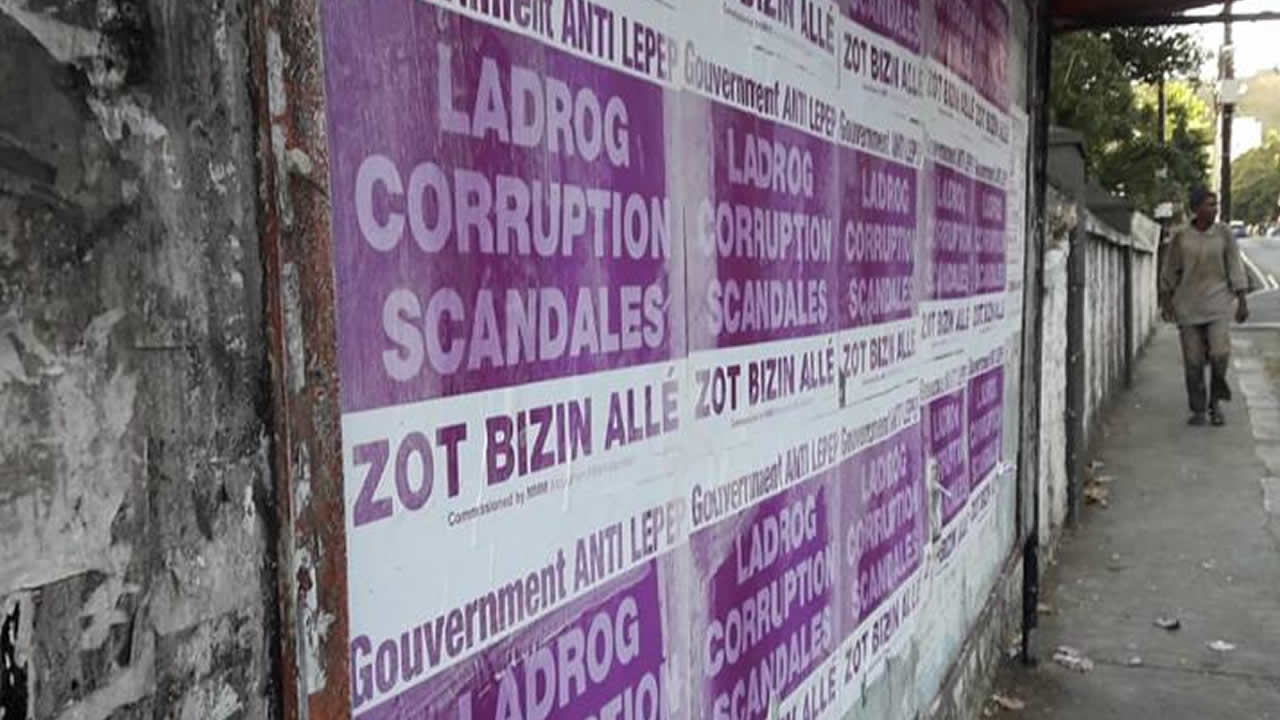
The financing of political parties has been under intense debates during the past few weeks. The Political Financing Bill has not been voted in the National Assembly, as a three-quarter majority was not reached. The Bill intends to regulate political donors and electoral expenditure.
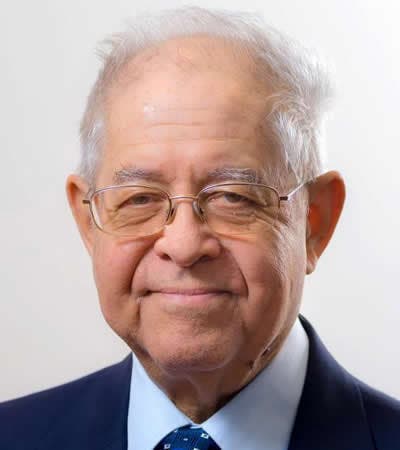 The objective of the Political Financing Bill is to provide for accountability and transparency with regard to the financing of political parties, independent members of the National Assembly and independent candidates nominated to stand at a general election, so as to prevent undue influence and corruption. The law will further enlarge the functions and powers of the Electoral Supervisory Commission and the Electoral Commissioner to better regulate political financing. Furthermore, the Government also aims to amend the Representation of the People Act. However, in Parliament on Tuesday, the Bill failed to get the required three-quarter majority.
The objective of the Political Financing Bill is to provide for accountability and transparency with regard to the financing of political parties, independent members of the National Assembly and independent candidates nominated to stand at a general election, so as to prevent undue influence and corruption. The law will further enlarge the functions and powers of the Electoral Supervisory Commission and the Electoral Commissioner to better regulate political financing. Furthermore, the Government also aims to amend the Representation of the People Act. However, in Parliament on Tuesday, the Bill failed to get the required three-quarter majority.
Among the salient features of this Bill, there is the compulsory requirement for all political parties to register with the Electoral Commission. The law also imposes a ceiling for campaigning expenses. Political parties should record details of all donations received, and cannot accept funding from foreigners, religious groups or parastatal bodies. Furthermore, for better transparency, companies wishing to donate to political parties must pass a resolution at board level. Anonymous donations are being banned.
But why do private companies finance political parties? For economist Pierre Dinan, the question is particularly relevant in the same way as one may ask why companies fund NGOs and other social causes. He explains that the law makes it compulsory for companies to contribute to the NCSR Fund, but even before the advent of such legislations, companies already contributed to social causes voluntarily. “Any business operating in a certain environment would want to ensure that the environment is peaceful. So businesses fund social projects to promote a healthy society, and they in turn benefit from an environment conducive to business development,” says the economist. “The same basic reasoning would apply, in my opinion, to the financing of political parties. Companies would want to ensure that the business climate is excellent and good governance is present, so that they can prosper, hence their political contributions.” He adds that the problem arises when there are excesses, for example the one who gives more hopes to get more benefits, and this is where the new legislation will come in handy. “The need for guidance and regulation was felt, therefore the law is welcome.”
ReA reveals corporate donations
A document circulated by ‘Rezistans ek Alternativ’ on the financing of political parties reveals that a few companies listed on the Stock Exchange of Mauritius have contributed a total of around Rs 63 million during the 2014 election campaign. New Mauritius Hotels contributed Rs 7.5 million, followed by Rogers who funded Rs 7 million. The Medine group gave Rs 6.9 million to politicians, Gamma Civic offered Rs 6.1 million while IBL paid Rs 6 million. Terra offered Rs 5.9 million. The following companies contributed less than Rs 5 million each: ENL Land, Omnicane, Alteo, UBP, Swan Life, CIEL group, Harel Mallac and Lux. It should be noted that all the companies mentioned have, according to ‘Rezistans ek Alternativ’, fully declared their donations in their annual reports.
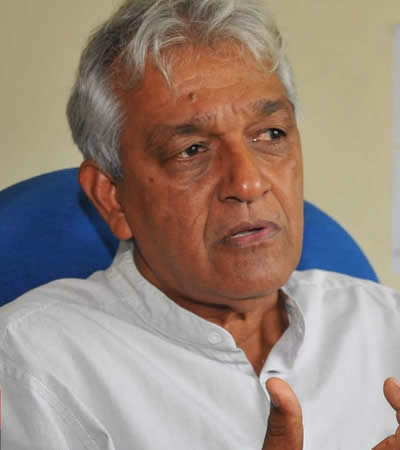 Jayen Chellum : “The State can also contribute non-financially”
Jayen Chellum : “The State can also contribute non-financially”
The Secretary General of the Association des Consommateurs de l’île Maurice (ACIM), Jayen Chellum says he has no problem if the State eventually provides funding to political parties, large and small, through a fair and transparent system. He believes that such a measure will help reduce the influence of large donors. “Under the current system, any elected government is under pressure from donors after the elections, so we can say that there is the risk that a government will look after the interest of donors first, then of voters,” says Jayen Chellum. He adds that the State’s contribution does not have to be limited to finance, but it can also include non-monetary aspects such as putting public amenities at the disposal of political parties, for example public halls, equipment and other facilities. “We know that our national television is extensively used by any government as a propaganda box, but the way this government is using the MBC seems to be breaking all records. I think the State must give all parties more access to the MBC for a fair and equitable campaign.” He says that the psychological contribution of the MBC is invaluable and all parties must have a fair share.
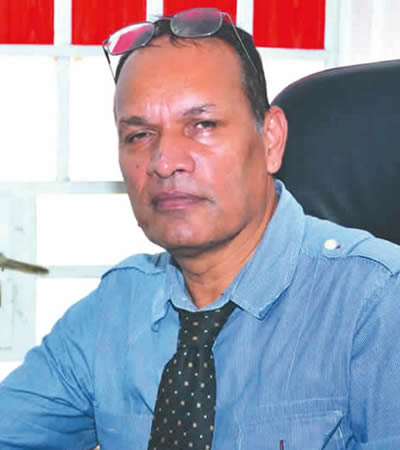 Dr. Raja Madhewoo : “Adopt modern campaigning methods”
Dr. Raja Madhewoo : “Adopt modern campaigning methods”
Dr. Raja Madhewoo, a social and political activist and spokesperson for the ‘Regrupma Travayer Sosyal’, commenting on the ‘Political Financing Bill’, says we have gone completely off track. He believes that it is time to rethink politics in Mauritius. “Our society has evolved and we cannot continue with traditional campaigning methods where we erect ‘bases’ and place banners and stick posters everywhere. These not only pollute the environment but also represent a threat to road users, especially two wheelers. He adds that one cannot continue with the tradition of offering alcoholic beverages to agents who cause disturbances. “Politicians must adopt modern methods, where everything is around debates of ideas.
Candidates must be able to convince the electorate that they deserve a ticket and parties must field in candidates with experience and flair and who have the ability to work in the interest of the people,” says Raja Mahadhewoo. He concludes that we should stop choosing candidates according to their ethnic profile. Regarding an eventual state funding of political parties, he proposes that the subject be further debated.
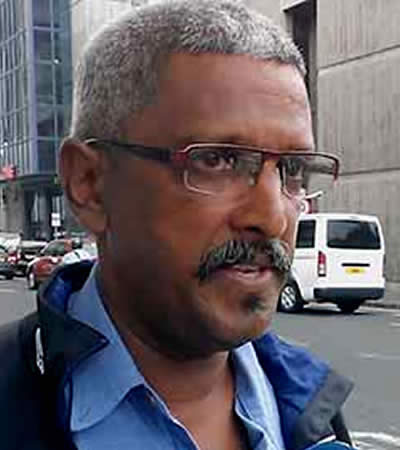 Darmen Appadoo : “The Bill does not provide for any imprisonment”
Darmen Appadoo : “The Bill does not provide for any imprisonment”
Darmen Appadoo, a social worker, says he has noted with amazement that the new draft legislation on the financing of political parties does not provide for any imprisonment for offences committed under it. In addition, he considers the fines to be too low to really deter non-compliance, given that they will be of an amount not exceeding Rs 500,000 or Rs 1 million. “Does this law really want to regulate politicians and their parties? It would be too easy for a politician to flout the law because, if he is found guilty, he will simply pay a fine,” observes Darmen Appadoo, who also speaks of a serious conflict of interest because it is a law prepared by politicians to govern politicians themselves. “I find that politicians are pretending to regulate political financing with a very soft law that will not scare anyone.” He wonders why the sentences were not more severe, such as prison terms or lifelong banning from doing politics, to really deter offences. “Compare that with the law that threatened prison sentences or a fine of Rs 100,000 for any citizen not wanting to get the new ID card.” The social worker also regrets the lack of consultation with civil society in general, as if the law on political financing concerns only politicians. “Do we want to consolidate democracy or undermine it further,” he queries. With the lack of consensus among the political class, Darmen Appadoo feels that this law is doomed to fail. However, he congratulates the ruling party for having dared to come up with such a law, while the opposition parties who criticise it have not even proposed a serious alternative.
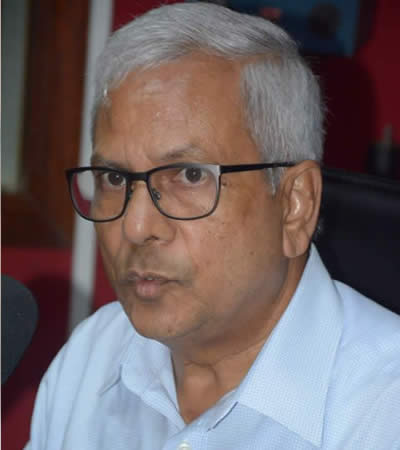 Dan Maraye : “The State must not finance political parties”
Dan Maraye : “The State must not finance political parties”
Dan Maraye, former governor of the Bank of Mauritius and a socioeconomic observer, says he is against any funding of political parties by the State. According to him, public financing of private political parties is not a simple matter. “I do not agree that taxpayers’ money is used to fund the politicians’ campaign,” says Dan Maraye. He argues that a person who chooses a political career must make his own sacrifice and self-fund his activities. “Already, taxpayers pay a parliamentary pension to ex-MPs, something which must be reviewed,” he opines. On the other hand, he believes that it is very difficult to implement such a system because the local political landscape is very complex. “On what criteria will public money be shared among the parties? Will independent candidates be eligible? There will be so many complications that it is better to forget such a project.” Instead, the observer advocates strengthening good governance around political finances so that sources of revenues are well-recorded in a transparent manner and the public has access to accounts. He concludes that if the parties have nothing to hide then they should not be against the idea of publishing their accounts, as is done for companies and NGOs.
Opinion : Election date: State secret?
Speculation is rife on the date of the next general elections. While the National Assembly stands automatically dissolved in December, it is unclear whether elections will be held this year or next. The postponement by a week of the PSAC exams has also given rise to another wave of speculation.
While Mauritius follows the Westminster style in the management of the country’s affairs, it has always been the prerogative of the Prime Minister to choose and announce the date of election. The date remains a secret until the last moment while in some countries like India or the United Kingdom, the date is known well in advance and it is up to the Electoral Commission to announce it.
People must be able to know well in advance when elections will be held so that they may plan their own events. Nobody will want to miss an election period, so those who plan holidays abroad would like to know the election date before organising their trips. Similarly, people would not want to choose a date for their weddings, engagements, religious or other ceremonies that might later coincide with the election date or week. Indeed, last time, in 2014, the population was caught by surprise.
We are a country that relies heavily on tourism and investment, and many tourists or investors would be reluctant to visit the country during the elections due to inconveniences (while some would be eager to be here to witness the electoral fever). Members of the Diaspora would be most interested to experience the elections. All this to say how important it is for everyone, especially in a country that claims to be a vibrant democracy, to know well in advance when the Government intends to hold the next elections so that they can plan accordingly!
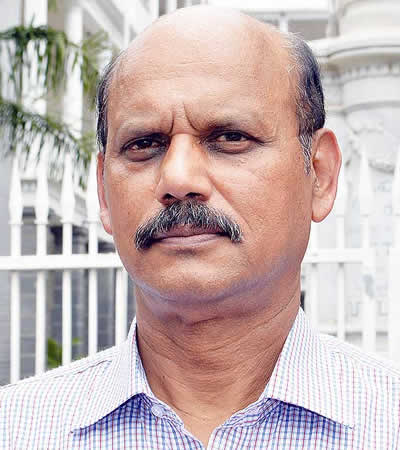 Radhakrishna Sadien : “Donations legalise corruption”
Radhakrishna Sadien : “Donations legalise corruption”
Radhakrishna Sadien, chairman of the Government Services Employees Association, says a categorical no to state funding of political parties. He observes that we cannot use public funds for such purposes. According to him, election campaigning is expensive because the methods have hardly changed since independence. “It is absolutely necessary to review the way electoral campaigning is done, to do away with traditional ‘bases’, etc. The trade unionist thinks that it is important to control how parties are funded, because donations tend to legalise corruption. “Thus, the vote is no longer sacred; it becomes a commodity with a price tag.” He foresees a rise in the number of parties if ever government financing is introduced.
 J'aime
J'aime














